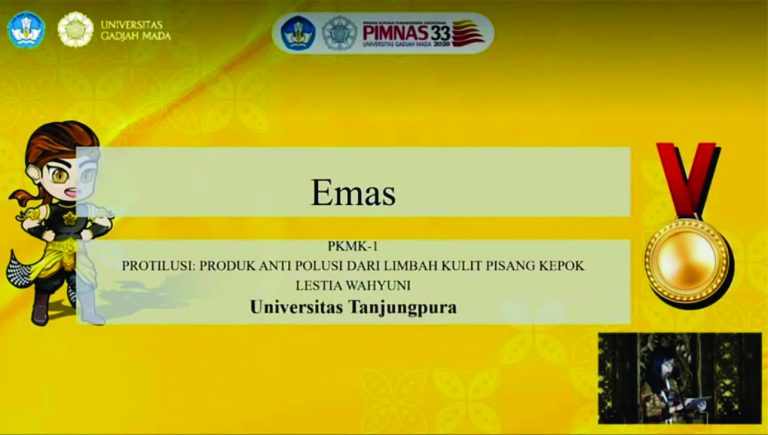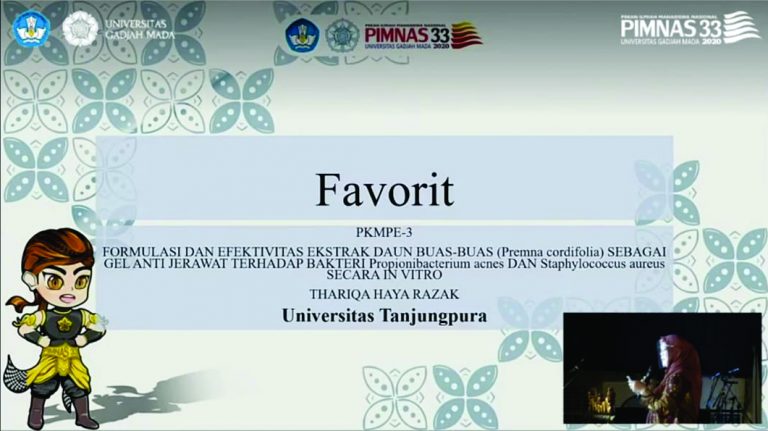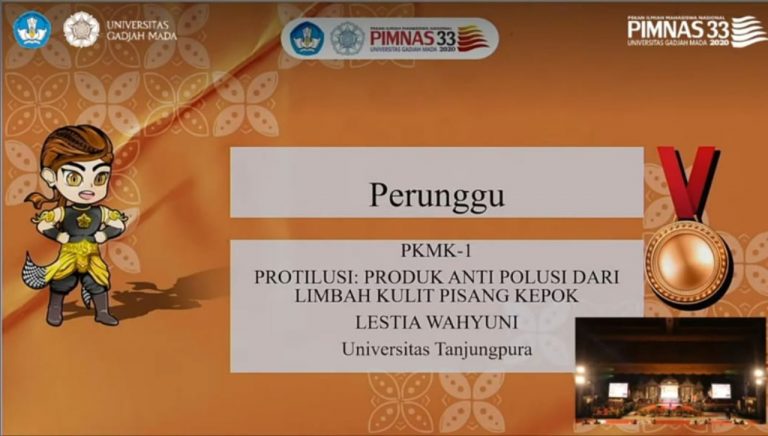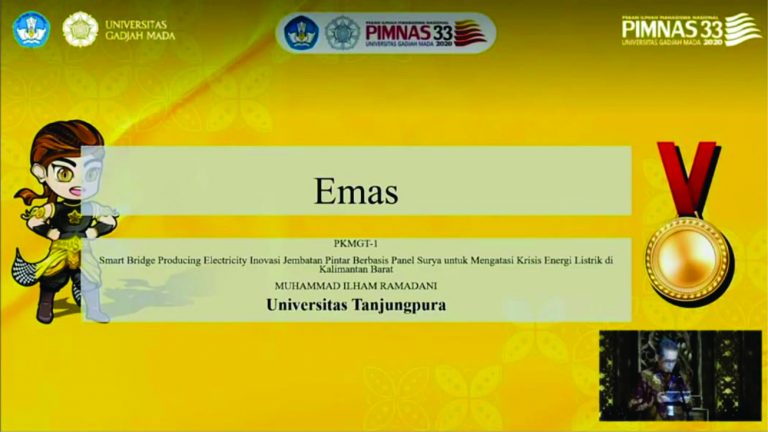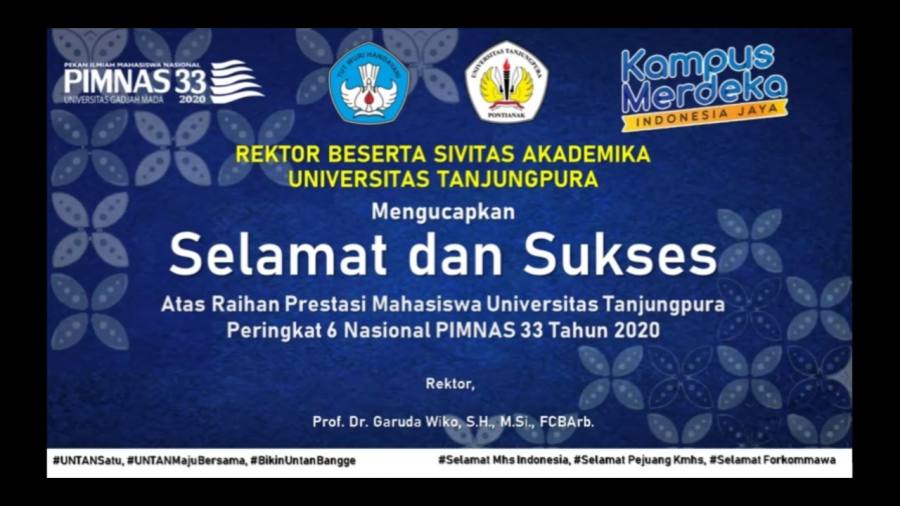
Universitas Tanjungpura (Untan) managed to make a brilliant achievement after winning the national ranking of the 33rd National Student Scientific Week (PIMNAS) at Universitas Gadjah Mada Yogyakarta, Saturday (29/11/2020).
In this competition, UNTAN recorded 2 gold medals, 1 bronze equivalent, and 1 favorite champion.
PIMNAS-33 in 2020 was held in an offline and online format on November 24-29 2020 and was attended by 625 teams from a total of 101 universities participated on the 33rd PIMNAS.
Source: Untan.ac.id
Starting from 2001, The Directorate General of Higher Education launched the Student Creativity Program (PKM) as an effort to grow, accommodate, and channel students’ creative and innovative ideas. The PKM was developed to lead students to reach the level of enlightenment of creativity and innovation based on mastery of science and technology. In general, the PKM aims to guide students to become individuals who know and obey the rules; creative and innovative; as well as cooperative objectives in building intellectual diversity. In the PKM, HOTS (Higher Order Thinking Skills) and creative thinking are grown and developed through the implementation of the Tri Dharma of Higher Education philosophy, which includes education and teaching; research and development; as well as community service. All fields of PKM are based in PIMNAS, except PKM-AI because the PKM-AI form is a scientific article that is not relevant to be discussed in PIMNAS.
The PIMNAS is the last stage of the implementation of PKM activities which is a national scale forum for participating students from the PKM and non-PKM pathways to present and communicate with each other through intellectual creations. As the peak of a national-scale student scientific activities, PIMNAS is held in tertiary institutions designated by the Directorate General of Belmawa based on the willingness and agreement of all higher education leaders. The objectives of PIMNAS are:
- Become a media and means of communication for students throughout Indonesia;
- Opening opportunities for the development of student potential in scientific activities;
- Sharpen their horizons and increase student creativity in the development of science, technology, and arts;
- Increase the bargaining position of students in the world of work or society;
- Provide feedback on the teaching and learning process in Higher Education;
- Improve student skills in conveying intellectual work in a scientific forum; and
- Strengthening academic cooperation and brotherhood within the framework of the Republic of Indonesia.
